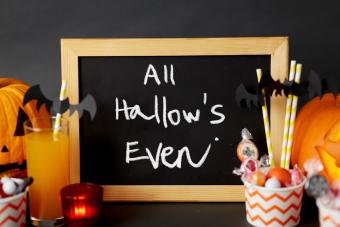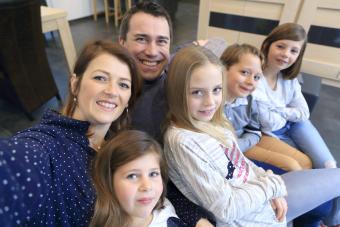
Amid the partying, trick-or-treating, ding-dong-ditching, and overall chaotic adventuring that happens on Halloween night, one of the things that often comes up is someone questioning where the Halloween name came from and which one sounds the coolest. Thankfully, you don't have to sell your soul or summon any spooky creature to learn a little about the name's regional roots, its contemporary transitions, and the Scots that started it all.
How the Halloween Name Has Changed Over Time
While Halloween is undoubtedly one of the best-known and beloved holidays in the United States (perhaps only surpassed by Christmas), the history behind the name itself isn't nearly as well known. Although there are a few other names for Halloween that people use interchangeably today, not every one that someone tosses out has the same connotation and meaning as the holiday's de facto name does. To make sure you've got your October celebrations straight and your history right, check out how the Halloween name has changed over time.
Samhain
Sometimes, people incorrectly refer to the October holiday as Samhain, when the term actually describes a celebration deeply rooted in Celtic culture that stretches back to long before Halloween existed. Celtic pagans designated October 31st to be Samhain, a celebration that marked winter coming and summer leaving. Typically relegated to the British Isles, this celebration is often incorporated into modern witchcraft, and some of those that believe in the metaphysical arts honor this holiday today.
However, Samhain was quickly overtaken by the Holy Roman Church's ulterior motives to eradicate pagan influence and culture in favor of their dynastic power, as they centered their own religious celebrations at the same exact time. While they tried to scratch Samhain out of history, you'll still hear it commonly used today.
All Hallows' Day & All Hallows' Even
Once upon a time, October 31st was called All Hallows' Even (later shortened to All Hallows' Eve), as it was the day before All Hallows' Day. All Hallows' Day or All Saints' Day as it was later known in the 16th century, was a Catholic holiday celebrating sainthood. Interestingly, you can find remnants of this old term still being used in the 21st century. However, it has long-since lost its popularity with most, and you tend to only hear it being used in period film pieces or by people who want to give their words a lofty, cultured affect.
Hallowe'en
The transition from All Hallows' Even into Hallowe'en is a fascinating example of how historic dialects can impact language on a global scale. Between the 16th and 19th century, people slowly started dropping off the 'n' in All Hallows' Even, turning it into All Hallows' Eve.
Yet, the tongue-twisting fun didn't stop there, as it was in the 19th century that All Hallows' Eve went through another evolution, putting it one step closer to the holiday name that we all know and love. With Romantic ideals on the rise and descriptive, flowery language being all the rage in the late 1800s, you see literature reflecting the older tradition of putting apostrophes into words to signify a missing letter. Thus, the 'v' in All Hallows' Even got left behind along with the 'all,' leaving just Hallowe'en.
Without any religious connotations, this Hallowe'en name was much more marketable and invited people from all religious affiliations to participate in the festivities.
Halloween
In much the same way that cursive handwriting has slowly died out, so too has the idea of using an apostrophe for anything other than contractions. Seeing as the apostrophe didn't impact the way that English speakers said the name, it was just a natural thing to leave it off and adjust for a contemporary spelling. Thus, by the 20th century, the name Halloween had become the final iteration of the holiday's names--at least for now.
What's in a Spooky Name?
Not everyone is a natural-born wordsmith, constantly compelled by the sounds around them. Rather, far more people just use the words they're the most familiar with and sound the best. Yet, with such a long history, you've got a great opportunity to wow your scary Halloween party with your etymological trivia.







